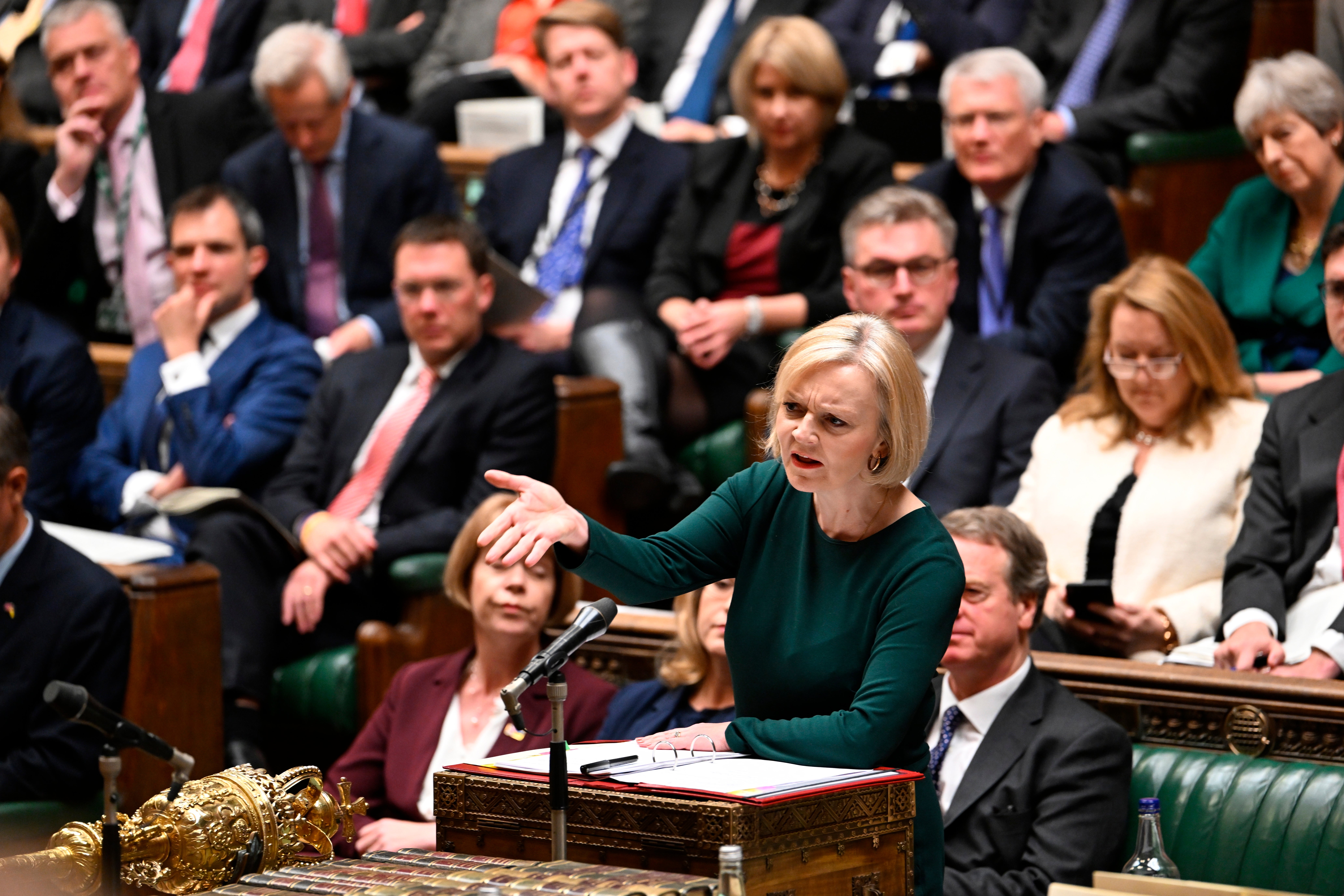How can Tory MPs remove Liz Truss? Here are the options
When a consensus does emerge, things could move very quickly down one of these paths, writes Andrew Woodcock


Just a month into Liz Truss’s rule and already the Westminster tearooms and WhatsApp groups are buzzing with debate among Tory MPs about whether – and how – she should be removed.
Hardly any are happy with the position their new leader has put them in. Few are sanguine about their chances of survival if things stay as they are. But there is little agreement about the way ahead, with none of the available choices looking appetising.
So what are their options?
Soldier on: Truss loyalists insist MPs should rally round the PM, wait for chancellor Kwasi Kwarteng’s statement on 31 October to calm the markets and then watch their plan deliver improved GDP over the coming years. But even the most fervent believers in the growth-stimulating powers of tax cuts shake their heads at this, doubtful that any positive impact will be visible in time to save their seats in the 2024 election.
U-turn: A growing bloc of Tories believe Ms Truss must bite the bullet as soon as possible, admit the 23 September mini-Budget was a catastrophe, sack her chancellor and row back on all or most of his tax-cutting plans. Corporation tax and stamp duty are the favoured options for backtracks, with some MPs queasy about the idea of reversing Mr Kwarteng’s 1p cut in income tax or the reduction in national insurance, which would directly hit middle-income households. Whether Mr Truss’s credibility could withstand such a humiliating climbdown – and whether the markets would have any more confidence in future economic stability – must be highly questionable.
Unity government: A substantial number of backbenchers feel the roots of Ms Truss’s difficulties lie in her decision immediately after taking office to pack her cabinet with supporters and exclude backers of Rishi Sunak, no matter how experienced or competent, from ministerial jobs. Could she clear out not just Mr Kwarteng but also the most toxic of her right-wing libertarian appointees, like Jacob Rees-Mogg and Suella Braverman, to make room for more reassuring faces and a more moderate agenda?
Appointing Sunak her chancellor would send the strongest signal of determination to reunite the fractured party, but many believe he would refuse to serve under Truss. In which case some favour a return to the Treasury for Sajid Javid, perhaps joined by department stalwarts like Mel Stride or John Glen, to mark an end to Kwarteng’s assault on “orthodoxy”. The prospect of Ms Truss at the head of a government unifying the warring wings of the Conservative Party may seem implausible – but remember, she has form, having switched from Lib Dem to Tory and from Remain to Leave to further her career.
Leadership battle: Despite their dissatisfaction with their current leader, this is the option that fills some Tory MPs with the greatest horror. Firstly, the process of removing Truss would be awkward, requiring a change in the party rulebook or a delegation of “men in grey suits” going to the PM and telling her to step down, at the risk of a bloodbath. Worse still, defenestrating Truss could trigger a repeat of the summer’s long drawn-out contest to succeed Boris Johnson. Few feel Tory fortunes will be improved if the government is plunged once more into stasis for months as the party’s leading figures tear chunks out of each other, only for the right-wing membership to select a new leader even more unpalatable to the electorate than Truss.
Coronation: Increasingly, Tories are casting their minds back to 2003, when the parliamentary party united behind Michael Howard as the single candidate to replace Iain Duncan Smith, to prevent the membership from again foisting on them a leader chosen for the purity of his right-wing views rather than his attractiveness to voters.
To some, Sunak is the obvious choice, as he won the largest number – though not a majority – of MPs’ votes in the parliamentary round of this summer’s contest. Others rule him out for his “betrayal” of Johnson and favour third-placed Penny Mordaunt as the unifying candidate. Others still muse about some kind of dream ticket involving both. But all these plans would come to nothing if a single other candidate stood, with Ms Braverman thought most likely to raise the banner for the right and potentially even secure the succession.
Back to the future: A not insignificant portion of the party still rues the loss of Mr Johnson and thinks he is the key to its revival. The former PM has kept uncharacteristically silent since his ejection, prompting speculation he is mulling a return. But some MPs shudder at the thought of offering a retread leader to voters so soon after they emphatically turned against him over the Partygate scandal.
As things stand, none of the options looks tempting and Tories are far from coalescing behind an agreed route out of their quagmire. Such is the nature of politics, though, that when a consensus does emerge, things could move very quickly down one of these paths.
Yours,
Andrew Woodcock
Political editor






Join our commenting forum
Join thought-provoking conversations, follow other Independent readers and see their replies
Comments